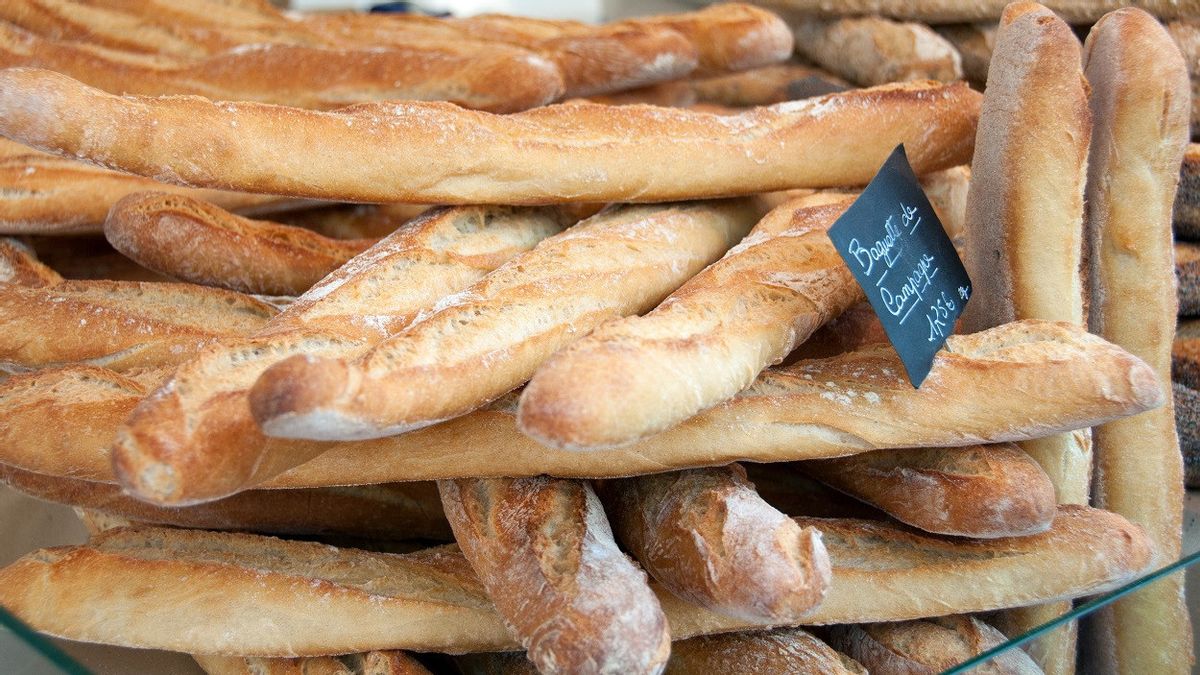JAKARTA - France's Baguette has been granted a world heritage status by UNESCO, the UN agency announced on Wednesday.
The Paris-based United Nations heritage organization chose to add "artisanal knowledge and baguette bread culture" to the list of Intangible Cultural Heritage.
The soft bread in the form of sticks with plansy skin is included in the list of about 600 traditions from more than 130 countries.
The judge said the decision respected more than just bread. It acknowledges the "savoires of the artianal baker" and "dayual"," said UNESCO chief Audrey Azoulay.
"It is important that these skills and social habits continue to exist in the future," added Azoulay, former French Culture Minister, as reported by The National News on November 30.
With the new status of the bread, the French government said it plans to make the artistal baguette Day, called "Open Bakehouse Day", to better connect France with their heritage.
With UNESCO's decision, bakers in France are proud, if not surprised.
"Of course it must be on the list, because the baguette symbolizes the world. This is universal," said Julien's Bakery's Asma Farhat near Jalan Champs-Elysee Paris.
"If there is no baguette, you can't get a decent meal. In the morning you can roast it, for lunch it's a sandwich and then accompany you to dinner," he explained.
Baguette is a symbol of France around the world and has been a key part of French food for at least 100 years, although some believe that baguettes have existed longer.
One theory suggests that the baker at the time Napoleon Bonaparte created an elongated shape to make it easier for troops to carry him.
However, another theory argues that it was actually an Austrian baker named August Zang who discovered a baguette in 1839, when he introduced a steam oven in France, making it possible to produce bread with a fragile but soft interior.
The peak of new products occurred in the 1920s, with the emergence of a French law prohibiting bakers from working before 4 a.m.
The long, thin shape of the baguette makes it faster than its heavier cousin, so it's the only bread that bakers can make at breakfast.
These days are baguettes, which mean "stick" or "stick", sold for about 1 euro.
Although baguette consumption has declined over the past few decades, France still produces about 16 million bread per day, according to Fidusia 2019 estimates.
Meanwhile, according to France's "Mati Observatory", French people chew 320 baguettes of one form or another every second. That's an average of half a baguette per person per day or 10 billion every year.
The problem, say the observers, is often of poor quality.
"It's very easy to get a poor baguette in France. It's a traditional baguette from a traditional bakeries that's in danger. It's about quality not quantity," said a Parisian, Marine Fourchier (52).
In January, French supermarket chain Leclerc was criticized by bakers and traditional farmers for its 29-cent, widely published baguettes, accused of sacrificing the quality of the bread measuring about 65 cm.
The English, Chinese, Japanese, Arabic, and French versions are automatically generated by the AI. So there may still be inaccuracies in translating, please always see Indonesian as our main language. (system supported by DigitalSiber.id)








